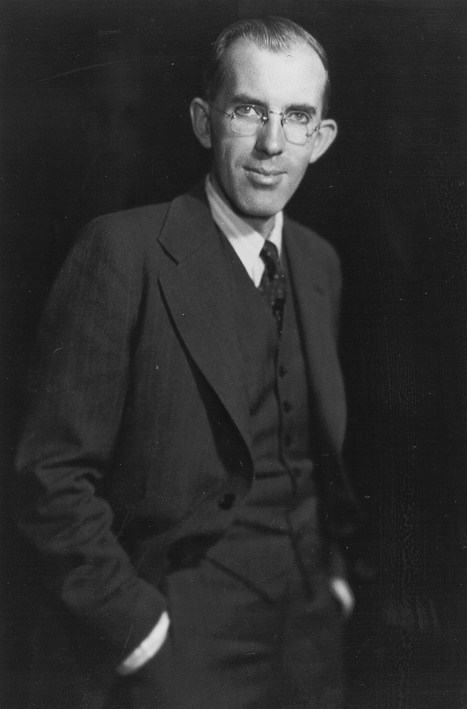
On this date the great Canadian parliamentarian Stanley Knowles was born (1908 – 1997). He represented the riding of Winnipeg North Centre for the CCF from 1942 to 1958, and again for the NDP from 1962 to 1984. Upon his retirement he was given the unprecedented distinction of being made an honorary table officer of the House of Commons by Prime Minister Pierre Trudeau.
Given back-to-back CCF/NDP anniversaries, this is a good time to cite Frye on his view of socialism as the C.C.F. emerged as a national political movement.
The current issue of Maclean’s [Sept. 1, 1934] has a very interesting catechism in it on Canadian problems and so forth that is supposed, after being related to a score, to show whether you are of a Conservative, Liberal, or C.C.F temperament. It’s pretty ingenious, and interested me chiefly because it placed me, with perfect accuracy. On the fence with the Liberal and C.C.F. battalions, exactly where a follower of Spengler and Mantalini ought to be. I think, with the C.C.F., that capitalism is crashing around our ears, and that any attempt to build it up again will bring it down with a bigger crash. I think with the Liberals that Socialism, as it is bound to develop historically, is an impracticable remedy, not because it is impracticable — it is inevitable — but because it is not a remedy. I think with the C.C.F. that a co-operative state is necessary to preserve us from chaos. I think with the Liberals that it is impossible to administer that state at present. I think with the C.C.F. that man is unable, in a laissez faire system, to avoid running after false gods and destroying himself. I think with the Liberals that it is only by individual freedom and individual democratic development that any progress can be made. In short, any “way out” must of necessity be miraculous. We can save ourselves only through an established co-operative church, and if the church ever wakes up to that fact, that will constitute enough of a miracle to get us the rest of the way. (Frye-Kemp Correspondence, CW 1, 155-6)
And here’s Frye fifty years later in Creation and Recreation on Wilde’s “The Soul of Man Under Socialism”:
Wilde attempted to deal with this aspect of creation too, in his essay “The Soul of Man Under Socialism.” He remarks there that “a map of the world that does not include Utopia is not worth even glancing at, for it leaves out the one country at which Humanity is always landing.” By “socialism,” however, Wilde means apparently only distributing wealth and opportunity more evenly, so that all people can become pure individualists, and hence, to some degree, artists. He says that in his ideal world the state is to produce the useful, and the individual or artist the beautiful. But beauty, like nature and reality, is merely another of those reassuring words indicating a good deal of ready-made social acceptance. Wilde is preoccupied in this essay by his contempt for censorship, and is optimistic that what he calls socialism would bring about the end of the tyranny of an ignorant and mischievous public opinion. This has not been our experience with socialism or any other system since Wilde’s time, and his prophetic vision in this essay seems to have gone out of focus. But, as usual, his sense of context is very accurate: he identifies the two aspects of our subject, the creation of a future society and the continuing of the creativity of the past in spite of the past. As he says: “the past is what man should not have been; the present is what man ought not to be; the future is what artists are.” (CW 4, 44-5)
